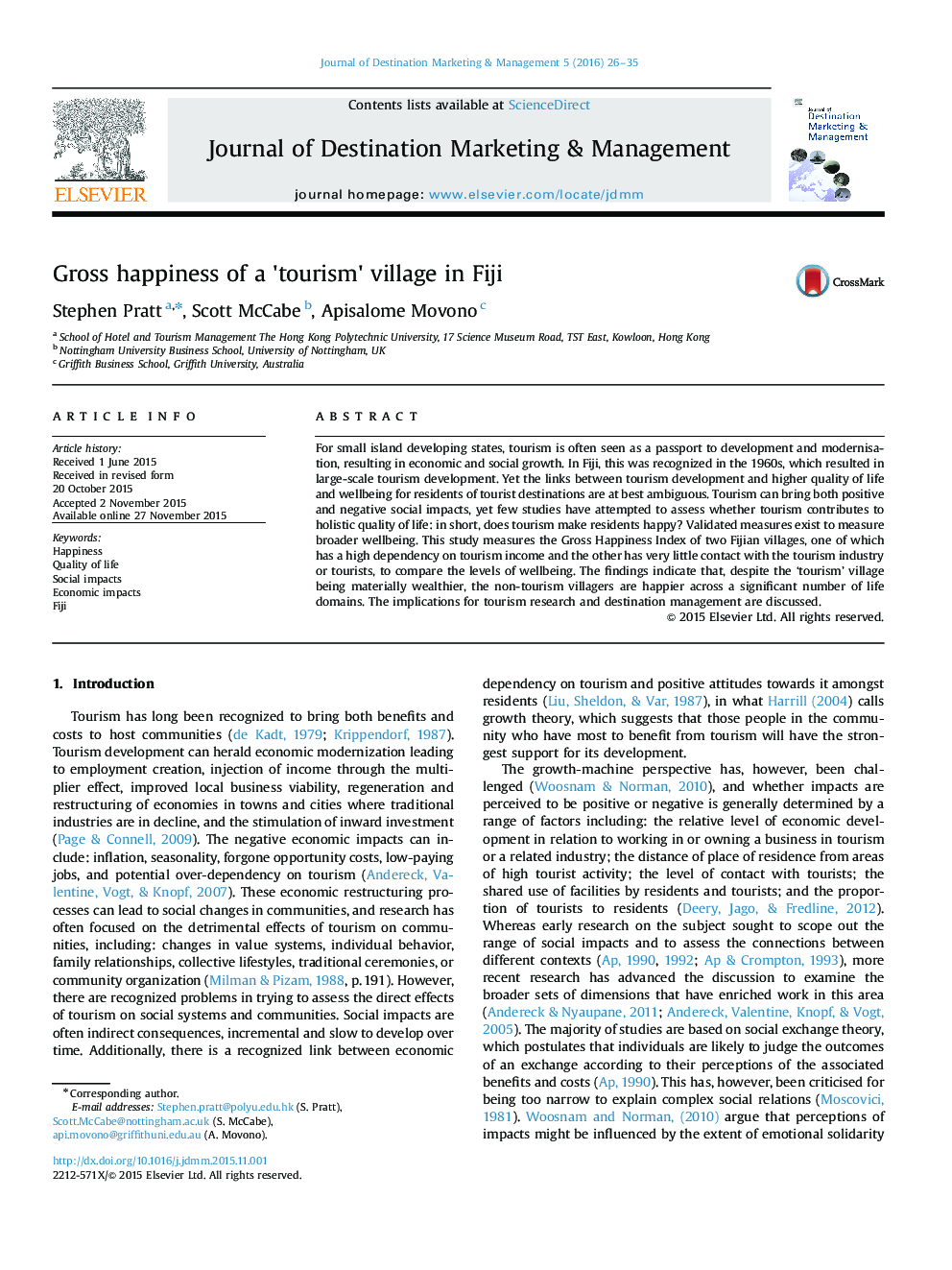| Article ID | Journal | Published Year | Pages | File Type |
|---|---|---|---|---|
| 1011065 | Journal of Destination Marketing & Management | 2016 | 10 Pages |
•Uses Bhutan's GNH Index to assess the happiness of a tourism village in Fiji.•Tourism contributes to the wellbeing of the tourism village.•Tourism also created issues and challenges for the village.•A subsistence village with little association with tourism was found to be happier.
For small island developing states, tourism is often seen as a passport to development and modernisation, resulting in economic and social growth. In Fiji, this was recognized in the 1960s, which resulted in large-scale tourism development. Yet the links between tourism development and higher quality of life and wellbeing for residents of tourist destinations are at best ambiguous. Tourism can bring both positive and negative social impacts, yet few studies have attempted to assess whether tourism contributes to holistic quality of life: in short, does tourism make residents happy? Validated measures exist to measure broader wellbeing. This study measures the Gross Happiness Index of two Fijian villages, one of which has a high dependency on tourism income and the other has very little contact with the tourism industry or tourists, to compare the levels of wellbeing. The findings indicate that, despite the ‘tourism’ village being materially wealthier, the non-tourism villagers are happier across a significant number of life domains. The implications for tourism research and destination management are discussed.
